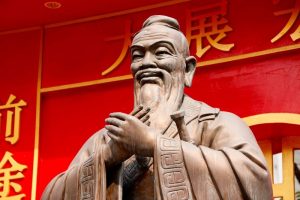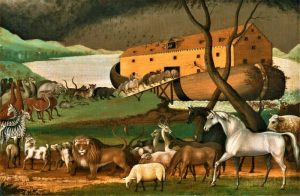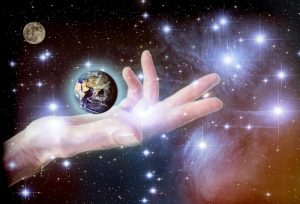Confucianism
Confucianism is a type of religion formed by a set of teachings and doctrines that were preached by the Chinese philosopher Confucius. It was considered the official religion of China until the seventh century AD. Confucianism exerted great spiritual and political influence in China, Korea, Japan, and Vietnam. East Asians may claim to be Shinto, Taoist, Buddhist, Muslim, or Christian, but they rarely cease to be Confucian. Their influence on the thinking of China and Japan was enormous. Considered sometimes as a philosophy and sometimes as a religion, Confucianism can be understood as an all-encompassing humanism that is compatible with other forms of religion.

- Type of religion: Philosophy of life
- Sacred books: Great Knowledge, Doctrine of the mediania, Analects, Mencius
- Origin: China
- Deities: The Lord from Above
What is Confucianism?
A religion formed on the basis of all the teachings and doctrines preached by Confucius, mainly the love for humanity; high value given to learning and devotion to the family; to peace and justice; which became the official religion of China.
Characteristics of Confucianism
- The Confucian religion sees the cosmos as a situation of harmonious origin that regulates the seasons, animal life, plant life and human
- They believed that a bad government went against the natural order and violated all Heaven’s
- The followers of Confucius practiced a cult that revolved around the worship of ancestors and powers of which Heaven was the clearest.
- From heaven came all the commands they must follow.
- They believed that the dead souls could benefit or punish their descendants.
- For them, the king or emperor was called the Son of Heaven and he was the only one who could mediate between Heaven and men.
- The Chinese rulers have the power and authority to perform rituals.
History
It is known that the founder of Confucianism was the Confucian philosopher, also known as Kongzi, a religion that was also known as the Ru jia doctrine or the school of literates as it is known by Western scholars. The word Confucianism was apparently created by European Christians who entered China in 1860 and was originally used to label their notion of non-Christian religions that had been found in China. Its thought spanned an extensive period spanning the times of springs and autumns and Combatant Kingdoms, which occurred between the 7th and 3rd centuries BC.
Origin of Confucianism
Confucius had to pay the price of ignoring the mysteries of life in order to focus his energy on the world. Confucian indifference to the great mysteries, whether cause or effect of lack of imagination, was the only approach consistent with the moment Confucius developed his thinking, a moment of great political struggle, moral chaos, and intellectual conflict, when order was practically non-existent. He decided to look for a solution to the challenges of his time, a way of curing a society that according to most of the people who lived in it was sick.
Belief
Confucianism strongly emphasizes three different aspects: mercy, social order, and responsibility; these aspects can be achieved when all people have well-defined roles and act appropriately toward others. For them, the “Ren” is the central ethical principle, which is equivalent to the concepts of love, mercy and humanity. Confucius explains it best in the following statement: “Do not do to others what you do not want them to do to you”. This ethical principle is further reinforced by the Buddhist tradition which states that merit is accumulated by doing merciful acts, leading to a better life through reincarnation.
The main objective is to achieve harmony, which is the most important social value. The family is the center and presents itself to the individual. The father is the undisputed head of the family. They believed that man should be in perfect harmony with the cosmos through self-perfection, which was achieved through introspection and study.
Gods
One of the gods that was very little mentioned in some of his texts was The Lord of High or Shangdi. He was not a passive god as he was in charge of sending the mandates and actions to follow. He was seen as a supreme divinity in the divinatory bones of the Zhou dynasty.
Books
His main books were the following:
- Great Knowledge
- Doctrine of the mediania
- Analects
- Mention
Symbol
The best-known symbol of Confucianism is the yin and yang, which is mainly associated with Taoism, is also used to represent Confucianism. It represents the balance between the opposing forces. The Chinese ideogram of water is also used to represent Confucianism, since water is seen as a life source by Chinese philosophy, and Confucius used to say that wise men rejoice in water.
Rites of Confucianism
The main rites of Confucianism were related to death. For Chinese culture, death is very important because there is a close relationship between the living and the dead, as they provide us with protection, prosperity, happiness and economic stability. While a person was dying, certain rites had to be practiced:
- The pillow: the pillow had to be removed from the bed so that the sick person could not see his feet, because if this happened, misfortune would accompany the family. This pillow could not be used again and was thrown to the roof of the house to decompose there.
- The clothes: the clothes of the deceased were prepared; it was important for the deceased to wear soft paper boots because the hard ones were unbearable for the dead. They did not wear a belt and the buttons had to be loose so that, according to their belief, the children of the family would never be kidnapped. The suit had to be new.
- The bed: the sick person was taken to another person’s bed to keep him away from evil spirits and so that, he could rest in peace.
When an old man was about to die, the whole family had to get together and the body was washed when he died. The candle was made for five or seven days. Then they carried the coffin to the plains in procession.
Clothing
According to Confucius, the man should not wear purple or blue. In summer, man had to wear cool clothes of fine thread and always wear a tunic on the outside. If he wore a black robe, his underwear must have been made of sheepskin, and if it was a yellow robe, fox skin. Their medals had to be hanging at the waist and their clothes had to be cut well.
How to cite this article?
Briceño V., Gabriela. (2019). Confucianism. Recovered on 3 January, 2025, de Euston96: https://www.euston96.com/en/confucianism/









